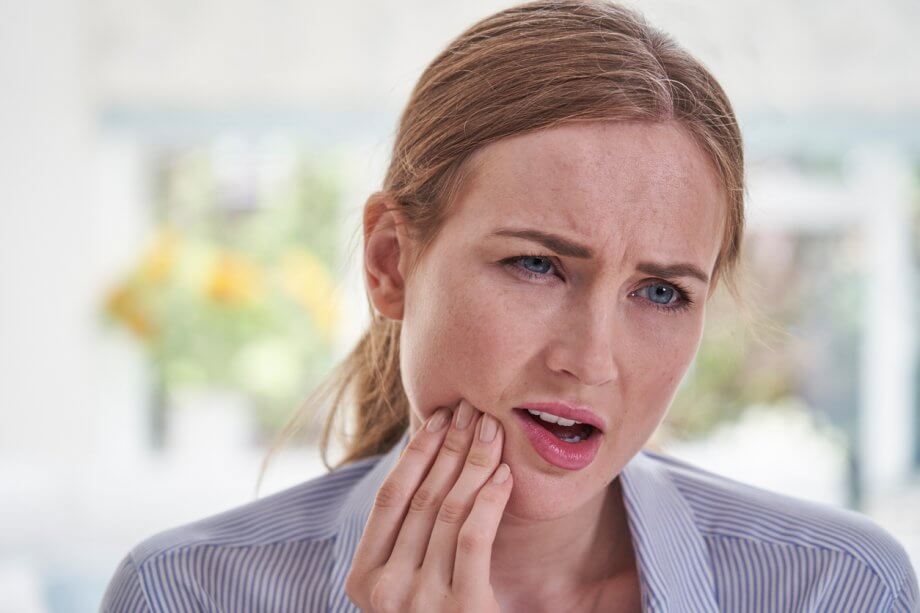When a dental emergency strikes, it can be hard to think clearly. You or your loved one is in pain, there might be bleeding or missing teeth—even the best of us have trouble staying calm, cool, and collected in such circumstances.
We hope that when reading this article, you’re not currently dealing with an emergency situation. Read the tips carefully so you know what to do when you, your child, or someone else you know has a dental emergency. If you are coping with a dental emergency right now and you’ve happened upon this post, read through it and call us (or, if you’re not near our Upper West Side dentist, call your local dentist) for assistance.
Here are dental emergency do’s and don’ts to remember:
Do Stop Any Bleeding First
As with any medical crisis, your first priority should be to stop bleeding. Of course, a little blood mixed with saliva is nothing to be too concerned about, but if you or someone else is bleeding profusely, use a clean, cold washcloth to apply firm, direct pressure to the site of the injury to slow or stop the bleeding. Lean forward, not back, to keep blood from flowing down into the throat. Do not lie down and do not stand up, as you may risk fainting—instead, stay seated until bleeding is under control.
Don’t Panic
The second priority? Try not to panic. As mentioned above, we understand that it’s difficult not to panic when faced with a dental emergency, but it’s important to keep your wits about you so you can take charge of the situation. If you’re the one with the injury and someone else is nearby, have them support you as you take care of the injury. If you’re caring for a child or someone else, help them breathe through any pain and distress; by staying calm yourself, you can help them stay calm too.
Don’t Worry About Finding Knocked Out Baby Teeth
Oh, the stories we’ve heard about parents on their hands and knees looking through blades of grass to find a baby tooth knocked out during soccer or baseball practice. If they do end up finding the tooth, we have to tell them that all their hard work was for nothing—we don’t reattach baby teeth that have been knocked out. If your child is near an age when the tooth would fall out naturally, we leave it be; if they’re younger, we will use a space maintainer to help keep room for the adult tooth to erupt in a few years.
Instead of focusing on finding the tooth, have your child rinse with water, clean any soft tissue damage and cuts, and use a cold compress for swelling. Give us a call so we can examine your child’s mouth to make sure there are no additional injuries. If you do end up finding the tooth later, save it for the tooth fairy.
Do Try to Find Pieces of a Broken Tooth
While you don’t have to look for a baby tooth, you should look for broken tooth pieces if your tooth has chipped. Why? They can often be bonded back onto the tooth. This works best if there’s a clean break, rather than many small shattered pieces. If you’re able to find them, place them in a small cup of milk and bring them in to our office when you come in for your appointment.
Don’t Touch the Root of the Tooth
If there’s one thing you remember from this article, let it be this: don’t touch the root! Grab the tooth by the crown (the portion visible above the gumline) instead if you or someone else knocks an adult tooth out. There are delicate periodontal cells on the roots of our teeth and grabbing them by the root can damage these cells, making the chances of successful re-implantation less likely.
What else should you do if an adult tooth has been knocked out? After locating it and picking it up by the crown, gently rinse it in milk or water to remove any debris. If you feel like you’re able to, hold the tooth by the crown and try to insert it back into the empty socket, then bite down on a clean piece of gauze to hold the tooth in place. If you can’t reinsert the tooth, put it in a small cup of milk (or, failing that, saliva) and bring it to our office.
The good news is that when prompt action is taken, adult teeth can be successfully reinserted. Those periodontal cells on the root of the tooth help the gum tissue surrounding it reattach securely.
Do Keep Knocked Out Teeth in Milk
We’ve mentioned milk a few times already and you’ve likely heard that advice before. It’s not an old wives’ tale—milk has a similar chemical composition as saliva, which is why it’s a good choice for keeping teeth moist until your dental appointment. It’s important that your tooth doesn’t dry out, so if you don’t have milk, use saliva or even water if you need to—just don’t wrap it up in a tissue and bring it in to us.
Don’t Hesitate to Go to the Emergency Room
If you’ve suffered significant facial trauma or your bleeding is uncontrolled, head to the nearest emergency room. You’ll be able to get treatment faster and a hospital is better equipped to handle blood loss, broken facial bones, and other complications. Once the situation is under control, you can make an appointment with our office to address any concerns with your teeth and gums.
Do Take Toothaches Seriously
Many patients deal with toothaches by ignoring them; when they can’t be ignored anymore, they start using over-the-counter pain relievers on a daily basis to alleviate the discomfort. Eventually, the pain is so severe, you have a dental emergency on your hands.
The first step in home treatment for a toothache is to floss around the tooth in question; often, sudden toothaches are the result of something lodged between two teeth. If this doesn’t make a difference, schedule an appointment—you may have a cavity, abscess, or another problem with the tooth that needs to be addressed.
Don’t Use Aspirin for Pain
On the topic of over-the-counter pain relievers, when choosing one to take for dental pain, don’t use aspirin. If you’re bleeding, aspirin can make it difficult for the bleeding to stop because it thins the blood. And if you’re not bleeding, it’s still not a good idea to take aspirin because if you come to our office for emergency treatment, that may cause bleeding and we want to make sure your blood can clot quickly after a dental procedure.
If pain is severe enough that you need to use medication, choose Tylenol (acetaminophen). For toothaches, an over-the-counter topical oral numbing gel may be used in moderation.
Do Use Cold Compresses
Cold compresses work. It’s a good idea to keep a few in your freezer at all times, that way when one starts to get warm, you’ll have another ready-to-go. Before using an ice pack, wrap it in a towel to prevent injury to the skin. Ice packs are effective at reducing pain, swelling, and inflammation. If pain and swelling persist, use the ice pack for 15 minutes at a time, then take a 15 minute break before applying it again. Continue with this until you begin to feel better.
Do Take Steps to Avoid Common Dental Emergencies
An ounce of prevention is worth a pound of cure. While these tips don’t do you much good if you’re reading this article in the midst of an emergency, they can help you prevent a future one. Here are some common mistakes people make that lead to emergency situations:
- Don’t use sharp objects to clean your teeth. If there’s something stuck between two teeth, use floss to remove it.
- Don’t use your teeth to open packaging.
- If you or your child participates in contact sports, use a mouthguard to protect the teeth from injury.
- Don’t chew on ice or anything else that’s hard and can cause damage.
- If you have children, don’t allow them to bite on hard toys (unless they’re babies who are still teething!) or run with things in their mouths.
- Visit the dentist regularly for routine exams and dental cleanings to prevent decay, periodontitis, and other issues that can lead to dental emergencies.
Do Call Our Office to Schedule an Appointment
Day or night, weekday or weekend, even on holidays, call our office when you have a dental emergency. If it’s outside of our regular office hours, follow the message for instructions on how to proceed. We’ll see you as soon as we possibly can and also help coach you on steps to take at home to care for the injury prior to your visit. Contact us at 212-222-5225 to schedule an appointment today.

